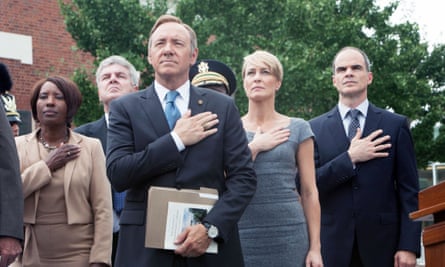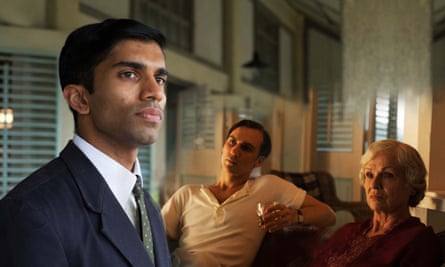There will be more TV drama on British screens than ever before in 2016 as broadcasters and streaming services seek to satisfy a growing public appetite with shows such as royal epic The Crown and the return of 90s favourite Cold Feet.
Big-budget shows such as BBC 1’s The Night Manager, starring Hugh Laurie and Tom Hiddleston in an adaptation of the John le Carré novel, kick off a year in which the BBC and ITV have increased their drama output to meet demand – driven partly by more people watching television on mobile devices, but helped by tax breaks that means British production companies can now spend more on their shows.
Just a few years ago spending on original TV dramas tumbled on the main channels by more than a third, but with the launch of original series from Netflix and Amazon an additional spur, broadcasters are putting money back in.
In 2014/15 the BBC aired 1,344 hours of TV drama across its four main channels, compared with just over 1,290 in each of the previous two years, and is investing an extra £30m in BBC1. ITV said it was “increasing [drama] hours in 2016”, although it declined to reveal the exact figure. Netflix said it was planning to raise its total global content spend in 2016 from $3bn (£2bn) to $5bn with one full new season of a series every other week. Amazon has commissioned more dramas, including The Collection, a period piece set in a Parisian fashion house. Channel 4, whose glossy period drama Indian Summers returns in March, last year doubled the amount of original drama it aired.
Steve November, ITV’s director of drama, said: “It is an exciting time as there is a huge appetite from audiences for high-quality drama. There have never been so many ways to watch so much drama, across more channels and more platforms. And in a world where video on demand is increasingly popular, drama has a longer shelf life than more topical and live programming.”

Simon Vaughan, chief executive of Lookout Point, who co-produced War and Peace, said: “People have added two or three hours of viewing time to their day because of their devices. They are able to watch more and there are now different platforms.”
The arrival of Netflix and Amazon had been a good thing for creative competition said Polly Hill, BBC controller of drama commissioning. “The more avenues there are and more appetite there is it just raises everybody’s game,” she said. “It makes producers and writers more confident and third parties want to be involved. It gives confidence to the industry.”
Netflix helped change the market after House of Cards first aired in 2013. That was a key momentin which the industry realised the pulling power a big drama could have. The on-demand service has spent £100m on The Crown, which tells the story of a young Queen Elizabeth, played by Wolf Hall’s Claire Foy, which will air later this year.
According to Jonathan Broughton, senior analyst at the business consultancy IHS, between April and September last year on Netflix, Amazon, Sky and Now TV, drama was the “most popular genre” on offer with “392 shows from a total of 1,494 shows”.
On-demand TV has been boosted, he said, by “a high number of exclusives such as Game of Thrones and Hannibal for Sky, Better Call Saul for Netflix, and Black Sails and Ripper Street for Amazon Prime”.
Vaughan, whose company made Ripper Street, a crime series which transferred from the BBC to Amazon two years ago, said previously there were just a few broadcasters who would develop dramas. Now things had “completely changed”. “You have over 100 broadcasters now who can act as a catalyst and pay the kind of money – around £700,000-£800,000 an hour,” he said.
Another reason for the increase in drama is that British companies are following an American lead and making series with longer runs, according to Golden Globe winner Helen Flint, whose company Little Island co-produces Indian Summers and the forthcoming Stephen Poliakoff BBC2 series Close to the Enemy.

“Viewers expect more episodes. A young runner said to me it’s so disappointing when it’s six episodes, it’s fantastic when it’s 10 because then you’ve got something to get your teeth into.” But tax credits had helped, Flint said. “It means we can do it without having to cut corners and we can make it properly.”
After tax breaks were introduced in 2013/14 to entice more investment in high-end UK-produced dramas, spending increased sixfold to almost £400m and the Treasury handed out around £79m in tax credits to shows such as Game of Thrones.
“It’s a golden era for television, not just drama. No one envisaged how much appetite there would be fuelled by the technology. TV has taken on a new place in the world,” Flint said. “It’s not second to films any more.”
- This article was amended on 8 February to correct the transmission date of Indian Summers, and make it clear it is a co-production

Comments (…)
Sign in or create your Guardian account to join the discussion